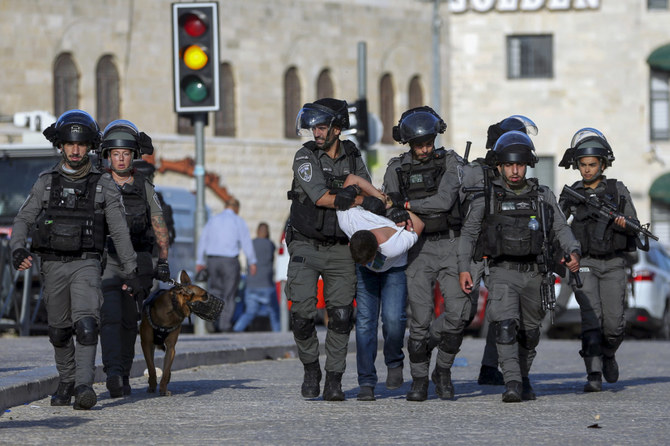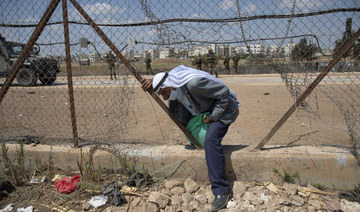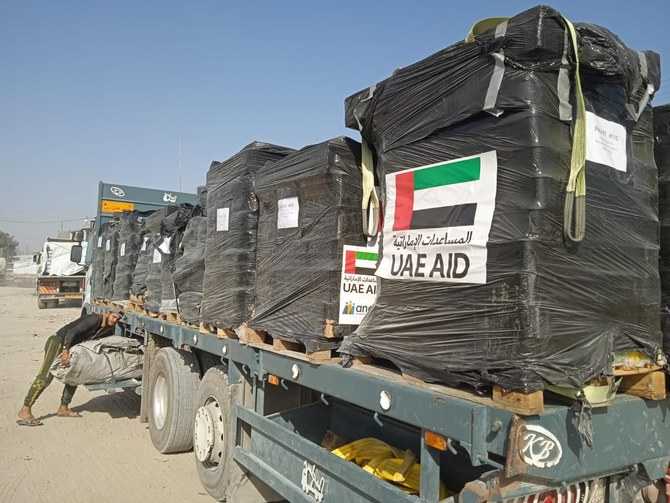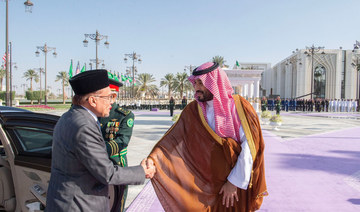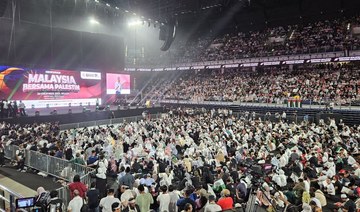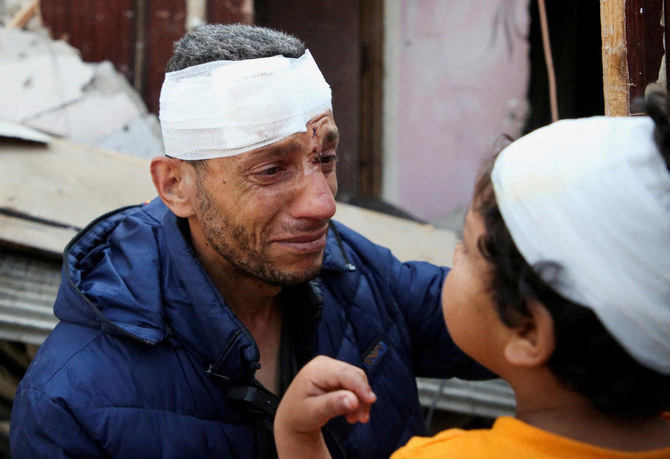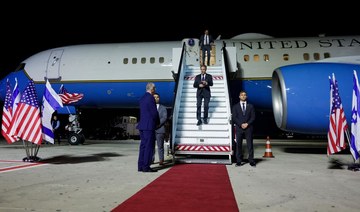NEW YORK: Israel pursues policies in violation of international law and of UN resolutions “Because it can — no tangible cost or consequence is attached,” the UN Security Council heard on Tuesday.
Daniel Levy, president of US/Middle East Project, told council members of the need to address what he called “an accountability deficit when it comes to Israel’s action” as it is one of the core understandings that should guide the peace process forward.
“If the unlawful and peace negating politics of Israel continue to be met with impunity, there should be no expectation of positive change.
Also to be considered is “a legitimacy deficit in Palestinian politics,” Levy said.
“The Palestinian Liberation Organization must become fully representative, inclusive and by extension better able to demonstrate strategic agency and to negotiate.
“Palestinians have a right to elect representatives to their national institutions. That requires a Palestinian leadership decision, as well as supportive, not preventive, steps by Israel and the International community.

Israeli activists of the Rabbis for Human Rights organization help Palestinian farmers harvest their olive trees in Burin village in the occupied West Bank, on Oct.19 2021. (Photo by Menahem Kahana / AFP)
“We also cannot ignore or condone when existing Palestinian self-governing authorities on the ground with their limited mandate repress their own people.”
Palestinian politician, activist, and scholar Hanan Ashrawi told the ambassadors that everything must be viewed in the context of occupation.
The security council’s inability to assert its authority, Ashrawi said, has allowed “this injustice to become a perpetual tragic, human modern political and legal travesty.”
She discounted talk of confidence-building between Israel and the Palestinians as “there can be very little confidence under occupation.
“The policy of confidence-building measures is misguided because occupation brings only contempt, distrust, resentment, and resistance. The oppressed cannot be brought to trust or accept handouts from their oppressor as an alternative to their right to freedom.”
Another attempt at spreading misconception is the constant call for “balance in an unbalanced situation,” Ashrawi said.
“The mindless refrain that Israel has a right to defend itself while the Palestinian people are denied such a right is perverse, and that the occupier’s violence is justified as self-defense while the occupied are stigmatized as a terrorist.
“Peace is not achieved by normalizing the occupation, sidelining the Palestinian question, or rewarding it by repositioning Israel as a regional superpower.
“Such an approach maintains in place the causes of regional instability while enabling Israel as a colonial apartheid to superimpose greater Israel on all of historic Palestine.”
Israel’s permanent representative to the UN Gilad Erdan strongly criticized Ashrawi’s presence at the security council meeting.
“A spokesperson for Palestinian leadership was invited to represent civil society,” giving a platform to what he called “Palestinian rejectionism.”
Erdan slammed security council meetings on the Middle East for what he called disregarding “the real threat to regional and global security: Iran.
“Iran has assembled six armies of terrorist proxies in the region and by allowing the Ayatollah regime to continue with the severe violation of their international commitments, these six terror armies will soon have an Iranian nuclear umbrella.”
Before the meeting began, Erdan told reporters in New York that such meetings have the sole aim to “bash Israel” and are a “waste of everyone’s time.
“The security council members help dig the ditch of conflict deeper,” he said.
Erdan called on council members to “stand up to Iran and demand that Palestinian leadership abandon their culture of hate. This is the only way to transform the region into a paradise of progress, prosperity, and peace.”




